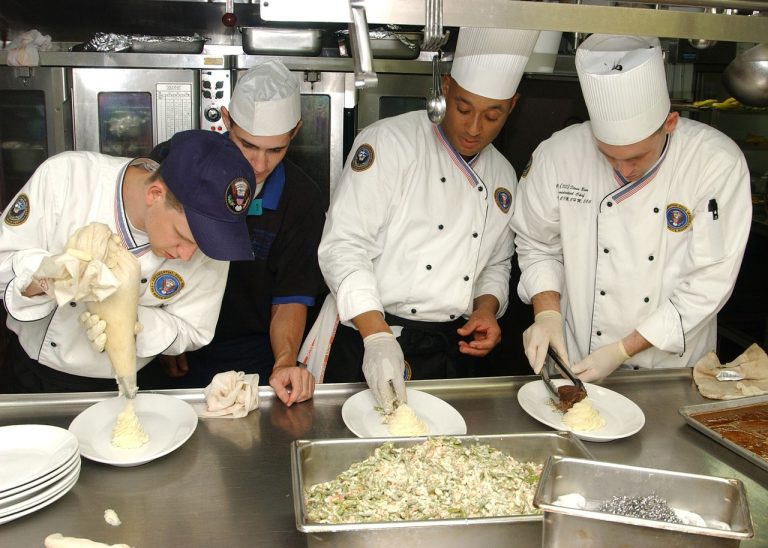How to Become a professional Food Writer

Are you passionate about food and have a flair for words? If the answer is a resounding “yes,” then a career in food writing might be the perfect recipe for you. In an age where culinary experiences are celebrated and shared more than ever, food writers play a crucial role in bringing the delectable world of gastronomy to readers. This article will serve as your guide to embark on a journey towards becoming a skilled and sought-after food writer.
Discovering Your Passion
Before you dive into the world of food writing, take some time to explore your love for both food and writing. Food writing is more than just putting words on paper; it’s about translating your passion for flavors, aromas, and textures into captivating narratives. Consider your personal experiences with food, the dishes that evoke cherished memories, and the culinary adventures that have left you craving for more. These experiences will become the seasoning for your food writing.
Building Your Culinary Knowledge
While a passion for writing is essential, it’s equally crucial to have a solid understanding of food. Start by broadening your culinary knowledge. Experiment with different cuisines, flavors, and ingredients. Visit local markets, try out new recipes, and learn to appreciate the nuances of taste. An extensive palate and culinary vocabulary are your tools for creating vivid and enticing food descriptions.
Writing Skills for Food Writers
Food writing demands the ability to describe dishes and dining experiences in a way that ignites the senses. Dive into the art of descriptive food writing. Paint pictures with your words, capturing the essence of a dish—its appearance, taste, and the emotions it evokes. Readers should be able to taste the flavors and feel the textures through your writing. Craft your narratives to engage the senses, making your readers’ mouths water and their taste buds tingle.
Food Journalism Basics
Understanding the fundamentals of food journalism is essential. Food writing encompasses various forms, from restaurant reviews and feature articles to recipe development and personal essays. Each form requires a unique approach and skill set. Dive into these different styles to develop versatility in your food writing. Learn to critique restaurants objectively, tell compelling food stories, and even create your culinary masterpieces through recipes.
Developing Your Unique Voice
In the world of food writing, your perspective is your superpower. Your unique voice and point of view are what set you apart from other food writers. Embrace your individuality and infuse your writing with your personality. Share your personal anecdotes, cultural influences, and culinary preferences. Your authentic voice will resonate with readers who connect with your experiences and passions.
Building a Food Writing Portfolio
Creating a strong food writing portfolio is your ticket to credibility in the industry. Start by developing a diverse body of work. Write restaurant reviews, craft feature articles on food trends, and experiment with recipe creation. Share your food-related experiences, from the family gatherings centered around special dishes to the exciting culinary adventures you’ve undertaken. Your portfolio should reflect your range and expertise as a food writer.
Networking and Collaboration
Networking is the secret sauce to success in food writing. Connect with chefs, food bloggers, food photographers, and others in the food industry. Attend food festivals, culinary events, and industry conferences. Collaborative opportunities can be a fantastic way to enhance your skills and reach a broader audience. Consider partnerships with local chefs, where you can share your food stories while they showcase their culinary creations.
Leveraging Digital Platforms
In the digital age, food writers have a plethora of platforms to showcase their work. Start a food blog where you can share your culinary adventures, recipes, and restaurant reviews. Social media platforms like Instagram are perfect for visually enticing your audience with tantalizing food photos. Building an online presence not only helps you reach a wider readership but also allows you to connect with fellow food enthusiasts.
Pitching and Getting Published
Pitching your ideas to food publications and websites is the next step in your food writing journey. Craft the perfect pitch that showcases your unique perspective and the value your article will bring to their readers. Be prepared for rejection, but don’t let it deter you. Keep refining your pitches and reaching out to different publications. Persistence is key in the competitive world of food writing.
Overcoming Challenges
Like any career, food writing comes with its challenges. Writer’s block can be as frustrating as a soufflé that refuses to rise. Criticism, whether from editors or readers, is part of the journey. Learn to embrace feedback as an opportunity to improve. Finding a balance between meeting deadlines and maintaining creativity can also be challenging. Strategies like setting writing routines and exploring different environments can help you stay inspired.
The Future of Food Writing
As the culinary world continues to evolve, so does the field of food writing. Stay updated on trends and opportunities in the industry. Consider niches within food writing, such as sustainable dining, food history, or culinary travel. The key to success is staying relevant and adaptable to the changing tastes and interests of your readers.
Conclusion
Becoming a food writer is a delectable journey that combines your love for food and words into a fulfilling career. Embrace your passion, build your culinary knowledge, and craft engaging narratives that transport your readers to the heart of gastronomy. Your unique voice and perspective are your most potent seasonings. With persistence, creativity, and a dash of resilience, you can savor the sweet taste of success in the world of food writing.
FAQs (Frequently Asked Questions)
- Is formal culinary training necessary to become a food writer? While culinary training can be beneficial, it’s not a strict requirement. A passion for food and the ability to appreciate and describe flavors are equally important.
- How can I find food writing opportunities and publications? Start by exploring local food blogs and magazines. Pitch your ideas to these publications and gradually work your way up to larger platforms. Online platforms and social media are also great places to share your work.
- What role does photography play in food writing? Photography is a valuable skill for food writers, as visual appeal is a significant aspect of food content. Learning food photography can enhance your portfolio and make your writing more engaging.
- Can I make a living as a food writer? Yes, many food writers make a living through a combination of writing for publications, blogging, and collaborating with the food industry. It may take time to establish yourself, but it’s a viable career choice for passionate food enthusiasts.
- Are there specialized niches within food writing? Absolutely! Food writing encompasses various niches, including restaurant reviews, recipe development, culinary travel, food history, and sustainability. Exploring these niches can help you find your unique voice in the field.






